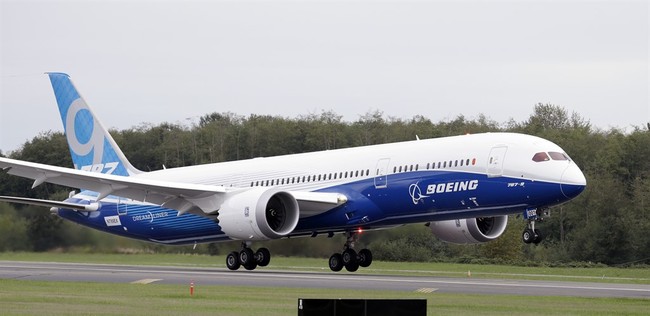
Safety is the most crucial aspect of the airline industry, and over the past few months, several issues with Boeing planes have shaken the public’s confidence. Boeing and Airbus are the two leading aircraft manufacturers globally. In addition to commercial airplanes, these companies also create military planes, communications equipment, rockets, missiles, and satellites.
Boeing-built commercial jetliners constitute almost half of the world’s fleet with over 10,000 in service globally. Additionally, Boeing offers the most complete family of freighters, carrying about 90% of the world’s cargo.
Yesterday, the Federal Aviation Administration (FAA) reported that a Southwest Airlines flight was forced to make an emergency landing in Denver after the engine cowling came off and hit the wing flap during takeoff. The Boeing 737-800 aircraft departed Denver en route to William P. Hobby Airport in Houston when the incident occurred. The flight had to return to Denver due to the damage from the mishap.
After the flight safely returned to Denver, the FAA released the following statement:
Southwest Airlines Flight 3695 returned safely to Denver International Airport around 8:15 a.m. local time on Sunday, April 7, after the crew reported the engine cowling fell off during takeoff and struck the wing flap The Boeing 737-800 was towed to the gate. The FAA will investigate.
Southwest Airlines also provided a statement to Fox Business concerning the issue:
Southwest Flight 3695 returned to Denver International Airport this morning and landed safely after experiencing a mechanical issue. Our customers arrived at Houston Hobby on another aircraft, approximately three hours behind schedule. We apologize for the inconvenience of their delay, but place our highest priority on ultimate Safety for our customers and employees. Our Maintenance teams are reviewing the aircraft.
According to Fox 31, four Boeing planes have had to divert to Denver this year due to various issues. In January, a United Airlines flight flying from Washington D.C. to Las Vegas on a Boeing 737-800 was diverted to Denver after flight crews reported a crack on the windshield. Another United Airlines flight, on a Boeing 757-200 from Boston to San Francisco, had to be diverted to Denver mid-flight due to wing issues. On March 29, during a United Airlines flight from San Francisco to Paris, the flight crew noticed a problem with one of the Boeing 777-200 engines. As a result, the flight had to be diverted to Denver to address the issue. This was the latest incident before the problem that occurred yesterday.
The ongoing issues with the Boeing 737 Max are significantly impacting major customers like United Airlines. Last week, United Airlines pilots were asked to take unpaid time off next month as the carrier is contending with Boeing manufacturing delays. In a statement to Fox Business, the company said:
We can confirm that due to the recent delays in Boeing deliveries, our forecasted block hours for 2024 have been reduced and we are offering our pilots voluntary programs for the month of May to reduce excess staffing.
Boeing has been informed that it cannot increase the production of its 737 Max planes due to safety concerns. The company and its supplier, Spirit AeroSystems, are under investigation by regulators following an incident in January. During a flight operated by Alaska Airlines, a Boeing 737 Max 9 door plug blew out mid-flight, prompting the investigation.
United originally expected to receive 77 Boeing 737 Max 8 and 9 jets in 2024, but according to a recent regulatory filing, it now expects only 56.
Boeing has suffered a major financial setback due to the Alaska Airlines incident. In the aftermath of the midair blowout that occurred in January, Boeing has paid Alaska Airlines compensation of approximately $160 million. According to an SEC filing, this is the initial compensation that Boeing has provided to address the financial damages from Flight 1282 and the grounding of 737-9 MAX.
Alaska Airlines confirmed that the $160 million is compensation for the approximate loss of the same amount they reported in the first quarter.
As a result of the Flight 1282 accident and the Boeing 737-9 MAX grounding, we lost approximately $160 million in Q1 pretax profit, primarily comprising lost revenues, costs due to irregular operations, and costs to restore our fleet to operating service.
Alaska Airlines stated that Boeing is expected to provide additional compensation, although the exact amount and terms are unknown.
Boeing is facing mounting pressure to address the internal safety issues related to its planes. Because there are only two major commercial aircraft manufacturers, the larger one cannot risk having safety concerns tarnishing the public’s confidence in air travel.











